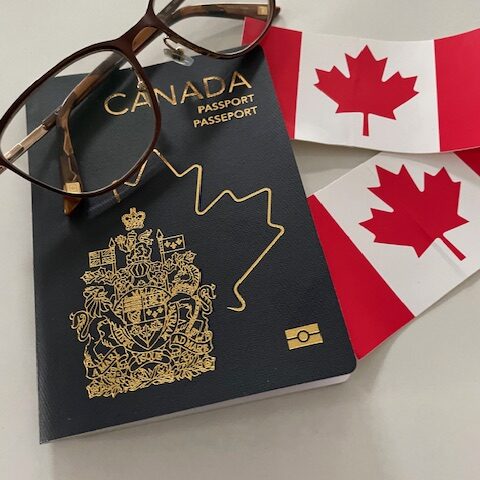
Canadian passport in a file photo.
Canada has approved more than 17,000 applications in the past 11 years from foreigners with criminal records trying to enter the country through the federal government’s rehabilitation program, the immigration department has confirmed.
Foreign nationals are not typically granted entry if they have been convicted of an act classified as a criminal offence in Canada, but exceptions can be made by Immigration, Refugees and Citizenship Canada (IRCC). The federal department has the authority to grant exceptions if five years have transpired since the individual was convicted or finished serving their sentence.
The IRCC received 25,350 rehabilitation applications between 2014 and 2024 from foreigners with a criminal background, the department said in an email to The Epoch Times, noting that applications may not be processed in the same year in which they are received. The department processed 25,265 rehabilitation applications over that 11-year period, approving 17,600 and rejecting 4,980. An additional 2,685 were withdrawn.
Having an application approved doesn’t mean an applicant is automatically granted entry to Canada, however. IRCC spokesperson Matthew Krupovich said not all of the 17,600 individuals with approved rehabilitation applications were subsequently permitted to enter Canada.
“People with past convictions outside Canada must demonstrate they have been rehabilitated and do not pose a risk to Canadian society,” Krupovich said in the email. “Canadians’ safety will always be our top priority.”
A total of 2,605 applications were submitted to the IRCC last year and 1,390 were granted approval. The agency approved 1,505 of the 2,645 applications received in 2023.
Applicants must “meet all eligibility and admissibility requirements” under the Immigration and Refugee Protection Act before being granted entry into Canada, the IRCC said.
“On arrival at a Canadian port of entry, all people must demonstrate to the Canada Border Services Agency (CBSA) that they meet the requirements to enter Canada and may be subject to a more in-depth examination,” Krupovich said, noting that admissibility was decided on a case-by-case basis, based on information available at the time of entry.
The decision to approve or refuse applications by those with criminal backgrounds were made by “experienced immigration officers” and were based on “legal criteria and a detailed review of the facts,” the department said.
“Each application undergoes careful assessment by an official with the expertise and training to assess these cases, with the safety of Canadians being top-of-mind, including the nature and seriousness of the offence, how long ago it occurred, evidence of good conduct since, and the person’s current situation and community support.”
The department said the application process has allowed performers and athletes into Canada and has also reunited family members and spouses.
IRCC did not provide details on the types of criminal offences of those who had their applications approved. It also did not say how many applications were submitted by individuals intending to visit Canada, as opposed to those applying for work, study, or permanent residency.
The CBSA told a House committee in 2024 that it had lost track of more than 28,000 foreign fugitives who were in Canada. That was down from the 29,248 reported in 2023.
A Senate committee was told by CBSA officials in 2023 that the agency was not able to pursue 100 percent of those with deportation orders. It said its target was to deport 80 percent of foreign fugitives.
Chandra Philip is a news reporter with the Canadian edition of The Epoch Times.
